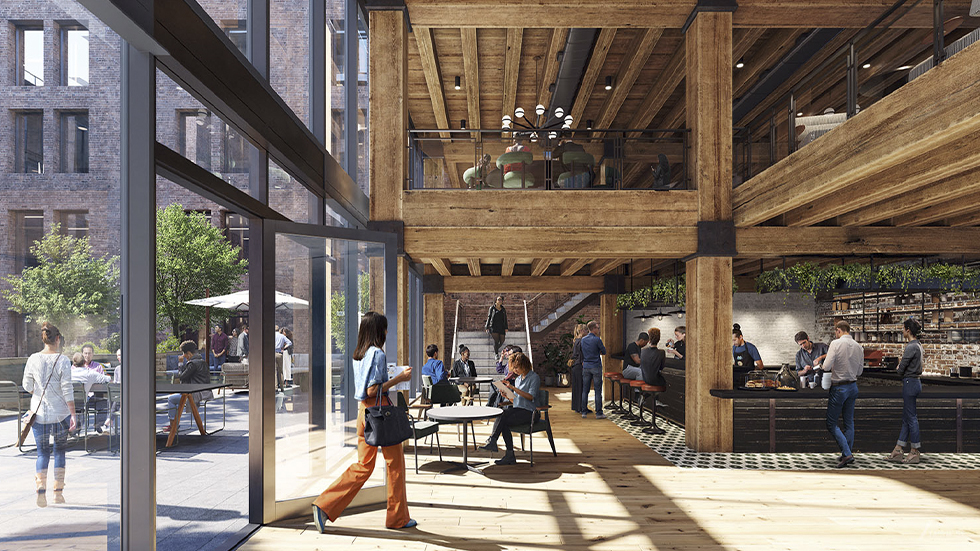Columbia Property Trust (NYSE: CXP), in partnership with L&L Holding Co., said it has secured $1.25 billion in construction financing for the restoration and redevelopment of the historic Terminal Warehouse in New York’s West Chelsea neighborhood.
Built in 1891, the warehouse’s 550,000 square feet of self-storage space will be converted into modern, class-A offices, while ground floor retail and common areas will be repurposed.

As part of the project plan approved by the New York City Landmarks Preservation Commission, floor area will be removed to make room for the new courtyard, a series of double-height interior spaces throughout the western portion of the building, and six new office floors with floor-to-ceiling glass overlooking the Hudson River. The project is estimated to be completed in 2023.
Columbia Property Trust CEO Nelson Mills said the project offers “a unique opportunity to create an unparalleled workplace experience for high performance, growth-oriented companies, while also contributing significantly to the 21st century vibrancy of the surrounding West Chelsea neighborhood.”

Terminal Warehouse occupies an entire Manhattan block from 11th to 12th Avenue and 27th to 28th Street. As the first major New York City facility with direct access to the river, streets, and rail lines, the building initially served as a transfer point for goods heading into and out of the city.
The property also features a 670-foot-long train tunnel with a twin set of rail tracks, which runs through the center of the facility and originally offered a direct connection from the Hudson River’s docks to the freight lines operating at street level along 11th Avenue.
The tunnel will be restored, which will uncover elements of the property’s history such as its original wood, brick archways, and exposed rails, and will house shops, restaurants, and other amenities. Columbia and L&L also plan to restore the monumental recessed arched entrances located on 11th and 12th Avenues, and to save and showcase as much of the interior’s historic timber as possible while still adhering to modern building codes.
Blackstone’s Real Estate Debt Strategies platform led the financing.